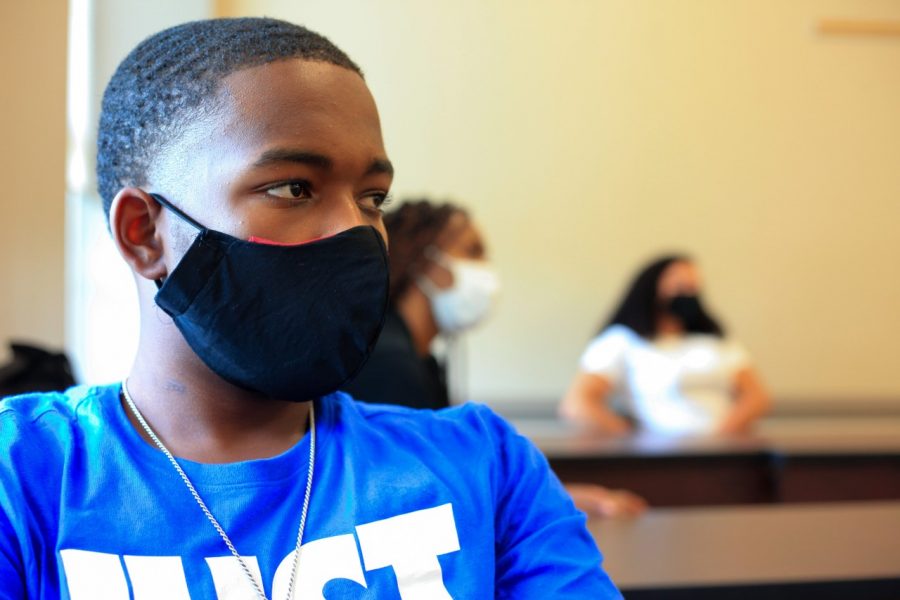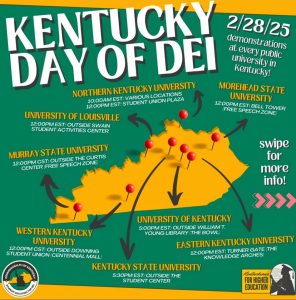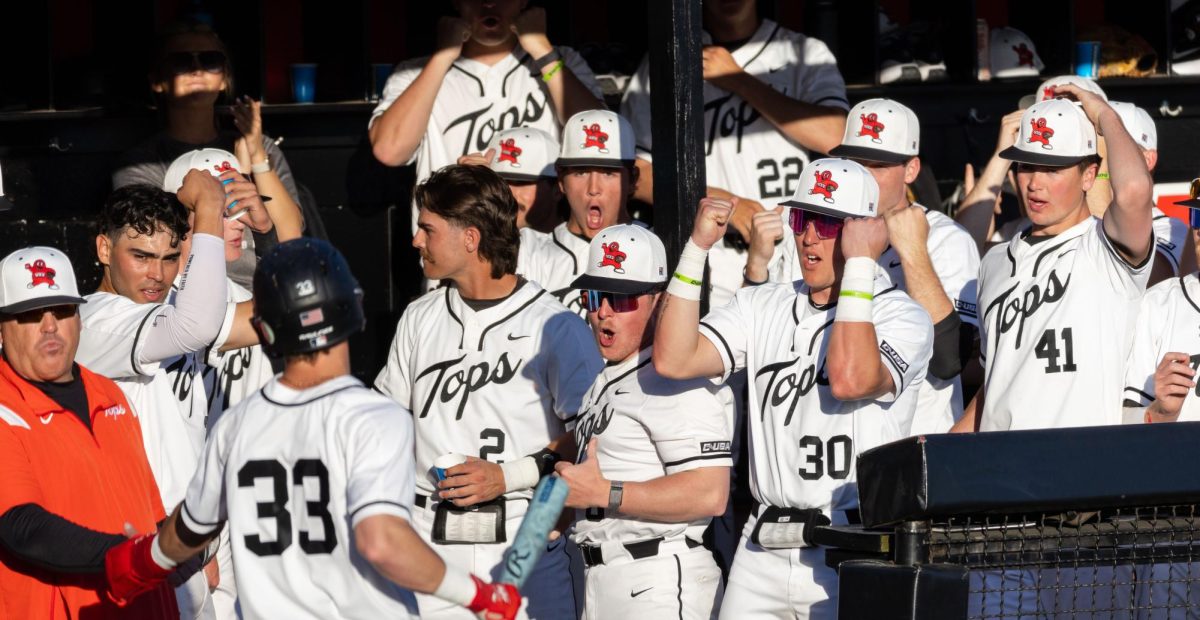WKU community reflects on diversity, equity, inclusion efforts
October 25, 2021
WKU, a predominantly white institution, has made efforts in recent years to improve diversity, equity and inclusion for its students, faculty and staff. While there is still work to be done, progress has been made.
Molly Kerby, assistant provost for institutional effectiveness and co-chief diversity officer, founded the Diversity, Equity and Inclusion Workgroup with Michael P. Crowe in 2019. Kerby is responsible for academic affairs and Crowe is responsible for enrollment and student experience.
According to Kerby, each college has their own representative in the workgroup and each representative has their own committee in their respective college. Kerby said that the purpose behind this was to ensure ideas from the workgroup were successfully implemented.
Kerby said that she has seen smaller diversity committees forming in the Sociology Department and the Alumni Association since the workgroup formed Kerby has seen improvement concerning diversity in the Student Government Association because of the student representation in the workgroup. Avery Wells is the student representative for the Committee for Diversity and Inclusion in SGA.
“Having enough representatives everywhere is making a big difference,” Kerby said.
Kerby said that retention rates for underrepresented minorities are going up and that she hopes that the efforts from the DEI Workgroup have contributed to that.
According to the WKU website, the 2019-2020 academic year saw a retention rate of 73% for under- represented minorities, 13.5% more than the previous year.
Kerby said that the One WKU Campaign was formed in the summer of 2020 as a way to unite the WKU community as a single group working towards inclusivity and equality for all.
Some of the specific initiatives One WKU has taken to improve DEI has been the reevaluation of the faculty hiring process to create a more diverse group of candidates as well as providing bias training for hiring search committees, Kerby said.
“If you’re a person of color, you could very much get through here without seeing anyone like you,” Kerby said. “I think we need people in mentorship that look like us.”
Fabián Álvarez, english professor, advisor of the Hispanic Organization of Latin American students and DEI Workgroup member, said that he has seen the HOLAS foster leadership and community among the students involved.
“Truth be told, WKU has been lacking in supporting diversity and inclusion, and there’s been a much more focused effort on the part of the university to reach out to communities of color and marginalized students,” Álvarez said. “There are more opportunities for scholarship and support for students who are in HOLAS and for students who are marginalized.”
Kerby said that seeing people in positions of power of different races, sexual identities and gender identities shows students that they are represented and they also have the opportunity to be successful.
Álvarez said that in his ten years as adviser of the HOLAS, he has seen the number of students involved grow and participation increase.
Two of the major things that support students are access to resources and access to scholarships, Álvarez said. He feels that WKU should continue to offer more scholarships to diverse students so they have a greater opportunity to receive a higher education.
Álvarez said that he encourages people to donate to the HOLAS scholarship in the Mahurin Honors College and minority scholarships in the English department.
Juan Tomas, a junior majoring in construction management, is the vice president of the HOLAS and a member of the Intercultural Student Engagement Center.
Tomas said being a first generation student from a hispanic background made it hard for him to relate to the predominantly white population of students on campus.
When he found the HOLAS, Tomas also found a community of people with a similar background that he could hang out and volunteer with.
Tomas is a mentor to students in both the HOLAS and in ISEC. He said he is able to share different resources with students as well as build friendships with them.
Tomas feels the university can do more to promote diversity by spotlighting organizations like ISEC and HOLAS to show other minorities that they have a community at WKU.
He thinks the university has done well hiring diverse professors. He has noticed diverse professors in the Ogden College and thinks it is good for the university to seek professors from different backgrounds.
Martha Sales, interim dean of students, executive director of WKU TRIO Programs and the WKU Intercultural Student Engagement Center, said that ISEC was created “to help students of color and LGBT students with college access and success.”
A few of her main roles are to assist the university with recruiting, retaining and graduating students of color as well as pride center students.
Sales said the ISEC Academy accepts a limited number of students each year, while the WKU Center for Academic Resources & Success is an ISEC program that accepts all students with need.
To Sales, the biggest impact these programs have made is keeping persistent retention and graduation rates of underrepresented students.
“We provide not only academic support but also cultural competency, environmental, empowerment and social support for students of color,” Sales said.
One ISEC effort that has made a big impact on students is the peer mentoring program. Sales said mentors are upperclassmen that assist incoming freshmen with navigating college and setting them on a path toward graduation.
“Another benefit is that it’s a family,” Sales said. “A lot of students of color feel alone on campus, so I think it provides them a home away from home. It’s a safe environment.”
The ISEC community holds each other accountable and supports one another, Sales said.
“We care enough to correct our students when we see our students are not operating to their fullest potential,” Sales said. “You have someone other than administrators holding you accountable. Your peers hold you accountable and make sure you cross that graduation line together.”
Sales has seen students step up and become more firm in their expectations for DEI and has witnessed faculty become more dedicated to the DEI effort.
She has also noticed faculty implementing diversity policies into the classroom and in WKU’s various colleges. Sales said that renaming Northeast Hall as Munday Hall after Margaret Munday, WKU’s first African American student, illustrates the growth in DEI administrative efforts at WKU.
Troy D. Davis, a member of ISEC and SGA, said that he was introduced to ISEC at the Topper Orientation Program and was encouraged to apply for the academy.
Davis said ISEC Academy has given him and other students access to scholarships and opportunities to find financial aid. Davis said that ISEC has also provided him with a community.
“The school does a good job making sure that when minority students come here they show them that there’s an avenue to get cultural identity and allow students to thrive,” Davis said.
He noticed when he got to campus his freshman year the student population was primarily black and white. He learned that WKU was a predominantly white institution and that finding ISEC helped him foster a community of people that had a similar background as him.
Davis sees WKU promoting DEI by giving students of color representation on campus and allowing them to create spaces for themselves. Davis said an example of this in SGA is allowing international students to elect a senator to represent them.
When Davis joined Greek life, he was surprised to see that WKU had nine all-black fraternities and sororities since it is a predominantly white institution. Davis said that it is good to see diversity in Greek life, and there is still action being done to unite the different councils.
To Davis, WKU can improve DEI efforts by making sure the representation it seeks is actually what the university portrays to students when they get here. Davis said it is important for students to see professors that look like them and to see advertisements around campus that have diverse students.
Davis said it is important for students to see diverse professors and faculty on campus because it tells students there are other people that know what you’ve been through and can understand the struggles you may be facing.
“From my standpoint I haven’t had too many people of color as professors, which says to me that this is something that Western can improve on going forward,” Davis said.
News reporter Madison Carter can be reached at madison.carter312@ topper.wku.edu.



















